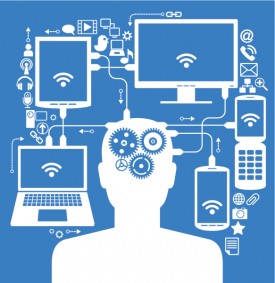Will Apple Pay Impact the Healthcare Payer, Provider Market?

While retailers and banks are already onboard, the healthcare market could be slow to adopt payment innovation.
- Health care technology has been evolving at a lightning pace in recent years and it seems as if every tech company wants to get involved. One of the most influential tech giants is Apple. Over the last couple of months it has made major strides in the consumer health market, which could end up impacting the industry as a whole through several new features and apps.

The most obvious impact has been the Health App. Built into iOS 8 and a major part of the Apple Watch, tracking personal health metrics is a major focus of mobile and wearable technology. During the unveil of the smartwatch in September, numerous sensors and features were highlighted that will help the wearer track their health and activity.
However, a less obvious announcement that could play a big role in evolving the health care industry in the years to come is Apple Pay. Launched on October 20, Apple Pay is a new system that allows consumers to make payments from their iPhones, iPads and the soon to be released Apple Watch, directly to a retailer or other business at the cash register. It turns these mobile devices into a mobile wallet and allows users to transfer funds without ever taking out a credit card, check or cash.
“Our team has worked incredibly hard to make Apple Pay private and secure, with the simplicity of a single touch of your finger,” Eddy Cue, Apple’s senior vice president of Internet Software and Services said in a press release.
While many retailers and banks are already on board, health care payers will need some time. In an interview with RevCycleIntelligence.com, Deanne Kasim, IDC research director for Payer Health IT Strategies spoke about where payers stand when it comes to innovation.
“Unfortunately, we are a little bit behind the times of innovative payment methods in health care but I really hope we catch-up there,” Kasim said. However, she did say that there is some chatter. “Where I’m seeing more of the mobile concern, especially for payers, is about how people pay for their exchange health plans, particularly off the public exchange or if they are in a private exchange. But in terms of being able to pay at the provider’s office I wish there was more innovation there.”
Kasim added that there is not a good handle on mobile adoption in the payer market right now but there are some innovative payment options and mobile apps coming for health insurance exchange.
If mobile in the health care landscape is going to take off, it will be on the back of its simplicity and security features.
“By reducing fraud, improving data security, and increasing credit/debit volumes for issuers and networks, while protecting the value of the existing payments value chain, we believe Apple Pay has a high chance of success,” a Morgan Stanley report reads.
